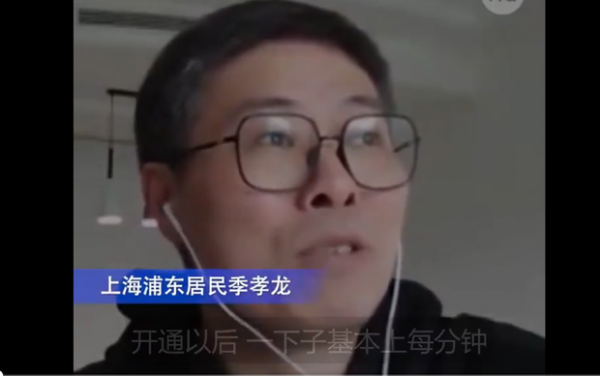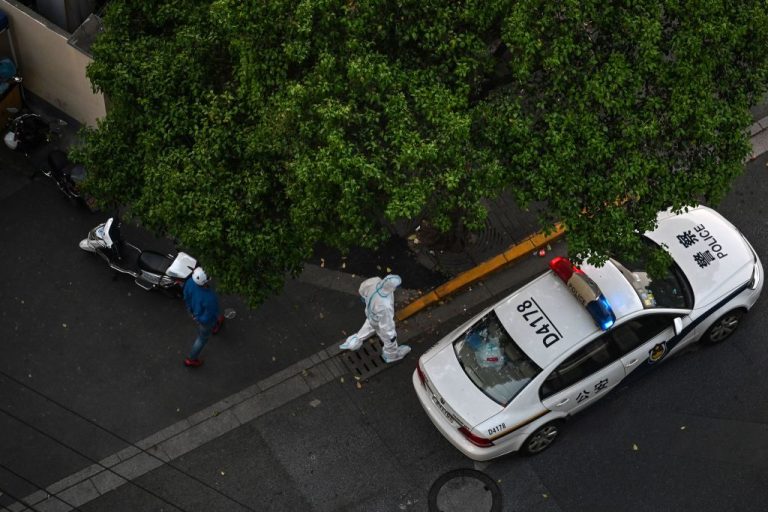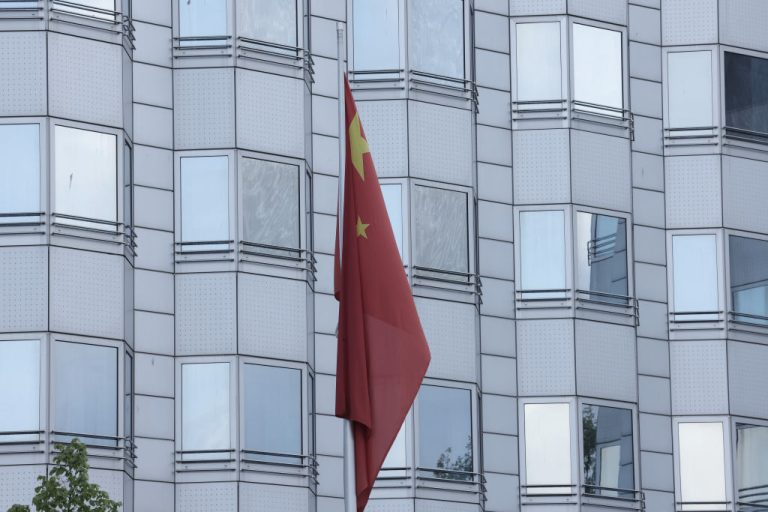Chinese authorities recently arrested another activist for speaking out against abuses committed by health and police authorities as the country continues adhering to its unbending “Zero-COVID” protocols.
Shanghai-based Ji Xiaolong was arrested on April 30 when police wearing hazmat suits appeared at his Yanlord Riverside apartment in the city’s Pudong district, breaking his door down and forcefully taking him and his wife into custody.
Ji was then released on bail on May 3 after paying a bond of 1,000 yuan (about US$151), and has vowed to continue speaking out for those who cannot speak for themselves.

READ MORE ON CHINA’S CORONAVIRUS SITUATION:
- Shanghai Reverses Decision to Loosen COVID Restrictions Despite Prolonged Suffering and Economic Damage
- Locked Down Shanghai Residents: ‘We Are at our Breaking Point’
- Inside Shanghai’s Makeshift COVID Hospitals, Chaos and Mayhem Abound
Authorities in Shanghai announced on April 20 that restrictions would be lifted in certain parts of the city, and an estimated 4 million residents would be allowed to leave their homes after weeks of being confined indoors, facing dwindling supplies of food and essentials.
Shortly after that announcement was made however, the city again doubled down on restrictions, telling residents that renewed rounds of mass testing would be needed to curb further spread of the virus.
Success
You are now signed up for our newsletter
Success
Check your email to complete sign up
On May 2, China reported 19,991 new COVID cases, but said only 368 of those were symptomatic. Shanghai reported the most symptomatic cases, at 274, while Beijing came second with 51 new infections that presented symptoms. Since early April, the country has reported over 15,000 new cases everyday.
‘The police are here looking for me’
After tweeting “The police are here looking for me” on April 30, Ji was not heard from for two days. On Monday, May 2, he told Radio Free Asia (RFA) that he had been taken to his local police station “for questioning.”
During the arrest, the police officers gave no indication of their identity or reason behind the arrest, instead choosing to seize one of his laptops and two cell phones, as well as some letters he had exchanged with his wife in prison, Ji said.
Ji also described how both he and his wife were “disinfected” and subjected to several PCR tests before being taken to the Meiyuan New Village police station and interrogated separately.
“I felt that something was up, because there were 10 of them this time, including two or three regular police officers from the local police station, some state security police from Pudong and also from the Shanghai municipal police department,” Ji said. “There were maybe four or five high-ranking officers.”
After being released, Ji said, “They confiscated my ID card, passport and cell phone, which has my Alipay account and I can’t get a new SIM card because they took my ID,” he said.
“So now I can’t go anywhere because you have to scan the [COVID-19] health code app to go anywhere.”
“I can’t go to the mall, I can’t ride the subway, I can’t even take the bus,” Ji noted.
In efforts to keep track of every citizen’s health status, everyone in China is required to have a mobile phone reflecting their COVID status.
People with green health codes are allowed to travel freely. Those with yellow or red codes are not allowed to visit public places such as supermarkets, hotels, restaurants etc. The affected individual has to then report all close contacts to health authorities, undergo quarantine and several nucleic acid tests before they can be cleared and given a green status again.
Those who test positive, however, even if they aren’t showing any symptoms or require medical care, are taken away by pandemic staff to government facilitated quarantine sites, and told to remain there until they test negative.
Arrested for speaking out against “Zero-COVID”
Ji, who had previously spent nearly four years behind bars for writing political graffiti in a public restroom in Shanghai, has been a vocal critic of the Chinese Communist Party (CCP)’s COVID policies. The stringent measures have resulted in disinfection theatrics, prolonged draconian lockdowns, mass testing and travel restrictions.
Locked down residents in Shanghai have repeatedly complained of shortages of food and essential supplies as well as a lack of access to life-saving medicine for those seeking treatment for anything other than COVID-19. Many have also said that the government’s “Zero-COVID” policies have resulted in “total chaos” and revealed deep dysfunctions within its governmental bodies.
Ji’s arrest came after he posted a petition to several social media sites calling on the central government in Beijing and the municipal authorities in Shanghai to suspend its pandemic policies, and compensate Chinese citizens and businesses for the economic losses incurred as a result of the lockdowns.
Ji had also posted a number of video clips and posts about Shanghai under lockdown, and said his bail notice was listed as: “picking quarrels and stirring up trouble,” — a charge frequently used by officials to target critics of the government.
During the interrogation, Ji noted that none of the police officers had identified themselves to him, or asked him to sign a transcript of the interview. In fact, they never even showed him a warrant for the arrest and seizure of his personal property.
“I firmly believe that I am innocent,” Ji said. “I won’t sit idly by and watch the people of Shanghai suffer, and I will continue [to speak out].”
China’s capital under lockdown
Meanwhile, China’s capital also kicked off mass testing for 3.5 million residents in the bustling district of Chaoyang after 29 new cases were reported late last month, bringing the city’s total to 80 — the highest number Beijing has reported since the pandemic first began in the central city of Wuhan over two years ago.
Testing sites were set up overnight at residential complexes and office buildings around Chaoyang district, and long lines of people could be seen snaking around several blocks.
By April 27, authorities listed 10 additional districts and one economic development zone due for mandatory tests this week — covering a total of 20 million people, of which 16 million are scheduled to be tested before the first week of May.
Authorities also announced over the weekend that residents would be required to take weekly tests in order to board public transit or venture to public areas like supermarkets and hotels. On May 1, Beijing announced the opening of a centralized quarantine facility with a capacity of 1,200 beds.







